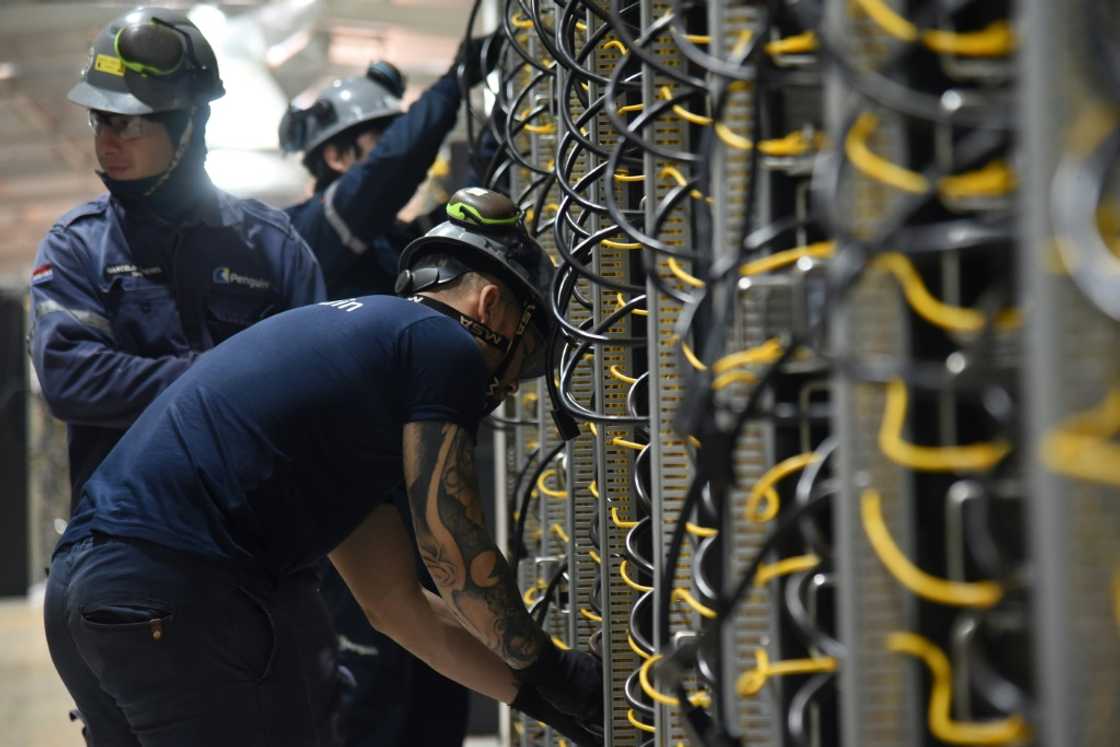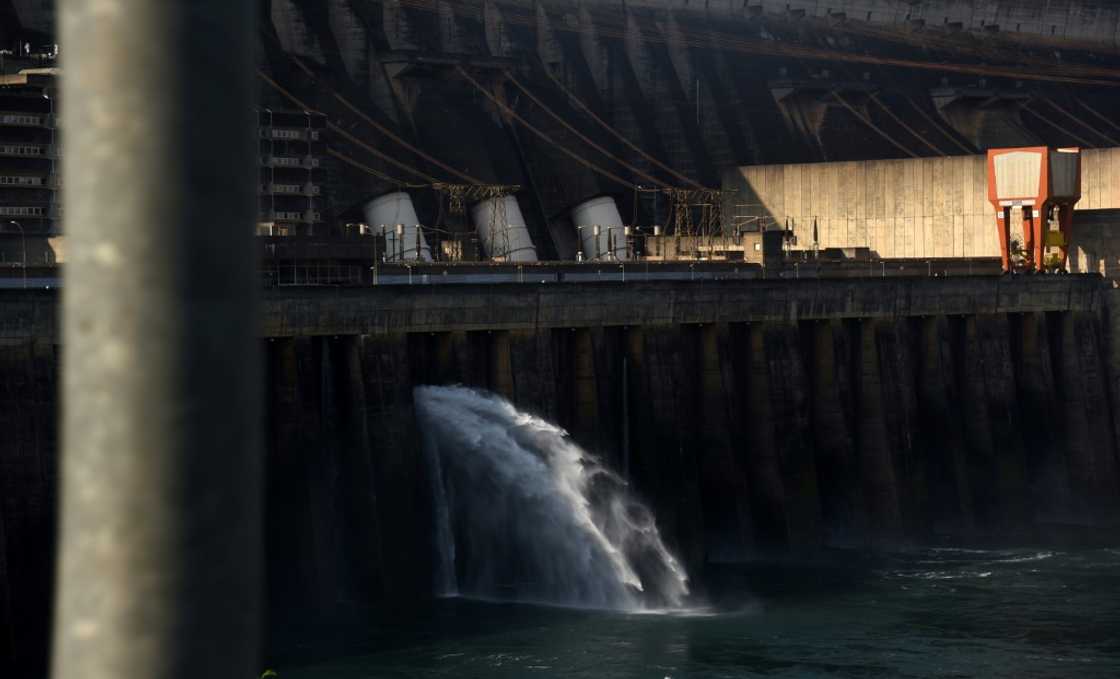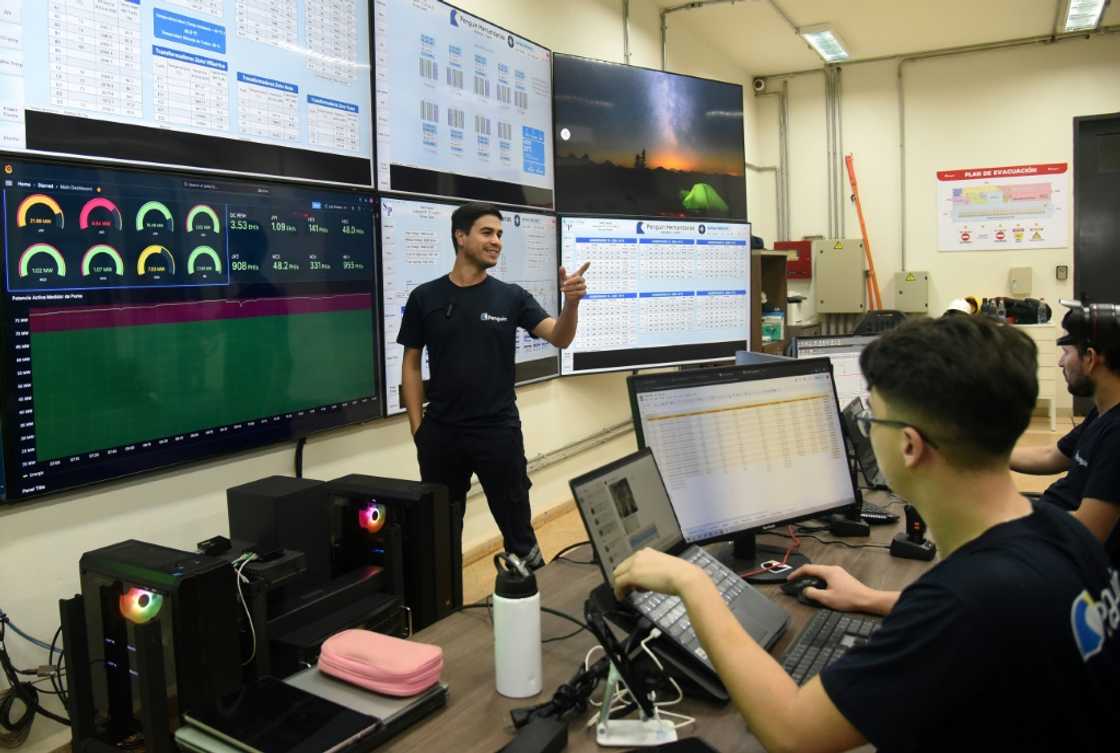Paraguay's abundant hydropower draws crypto miners, legal and not

Source: AFP
In the Paraguayan city of Hernandarias, a data center with row upon row of supercomputers stands as a testament to a burgeoning crypto mining sector fueled by the South American country's abundance of green electricity.
Run purely on renewable power, the soccer field-sized site was erected by local company Penguin Group near the Itaipu hydroelectric power plant, one of the world's largest, on the Parana river.
Landlocked Paraguay, whose economy is driven by agriculture, is home to three hydropower plants.
This has helped attract more than 60 crypto mining sites in the last three years alone -- representing more than $1.1 billion in investments, Penguin spokesman Bruno Vaccotti told AFP.
Penguin, with a US partner, built its Hernandarias data center for Bitcoin mining, artificial intelligence training models and cloud services as part of its vision for turning Paraguay into "Latin America's tech hub."
The only problem is that illegal crypto miners are also attracted to the country, siphoning off power and angering companies like Penguin in a country with a well-documented corruption problem.
PAY ATTENTION: Click “See First” under the “Following” tab to see Legit.ng News on your Facebook News Feed!
Just this month, police and officers from the state-owned ANDE utility company announced they had dismantled a massive illegal crypto farm near Hernandarias capable of diverting some $60,000 worth of power per month.
They confiscated nearly 700 computers and a transformer, but did not say how long the site had been operating for.
In May, another 2,700 computers and five transformers were seized in Saltos del Guaira in Paraguay's south -- the largest such operation to date.
Bribes

Source: AFP
ANDE has conceded it loses almost a third of all the power it produces, though not exclusively to illegal crypto mining, which involves computers solving complicated equations that require enormous quantities of computing power.
Vaccotti estimates losses at nearly $3 million per month.
And this in a country where 23 percent of households still cook on wood or charcoal -- still a cheaper source of energy despite Paraguay having some of the lowest electricity prices in Latin America.
This number is almost doubled in rural areas.
And despite being a net exporter, Paraguay's population battles frequent energy cuts due to poor maintenance and lack of investment in its own network.
Opposition politician Salyn Buzarquis has accused government officials of protecting illegal crypto mines in exchange for bribes.
"Why don't they discover more (illegal mines)?" he questioned in an interview with AFP.
"They are easy to detect," he added, as they "consume the equivalent of what a whole city consumes" in electricity.
'Serious struggle'
ANDE director Felix Sosa insisted the entity was doing everything possible to expose electricity thieves.
It had opened criminal proceedings in 71 cases, and has seized some 10,000 computers and 50 transformers in operations, he said.

Source: AFP
Deputy mining minister Mauricio Bejarano has described this as a "serious struggle," and last month, the Senate passed a law increasing the maximum sentence for energy thieves to 10 years in prison.
Companies like Penguin accuse the government of not doing enough, and lament a lack of "predictability" as well as a recent price increase for high energy consumption.
ANDE generates some $12 million a month from crypto mining, said Jimmy Kim of Paraguay's Digital Assets Mining Chamber (Capamad) -- yet charges the industry over 50 percent more than the conventional rate.
"Our companies are looking at Brazil," Kim told AFP, as "there is no legal security" in Paraguay.
PAY ATTENTION: Unlock the best of Legit.ng on Pinterest! Subscribe now and get your daily inspiration!
Source: AFP





